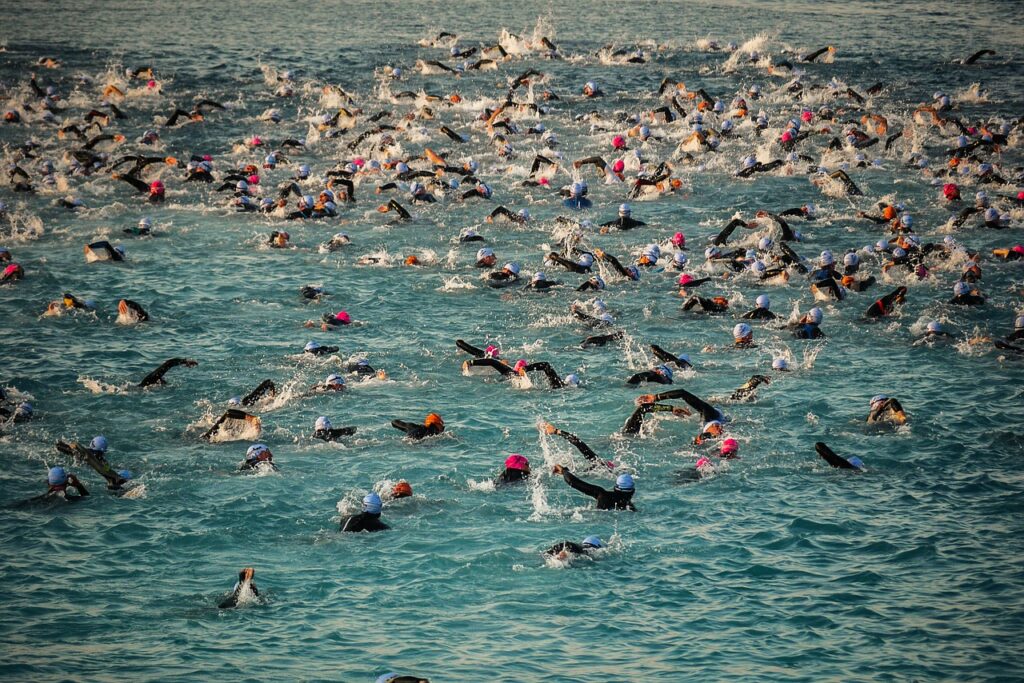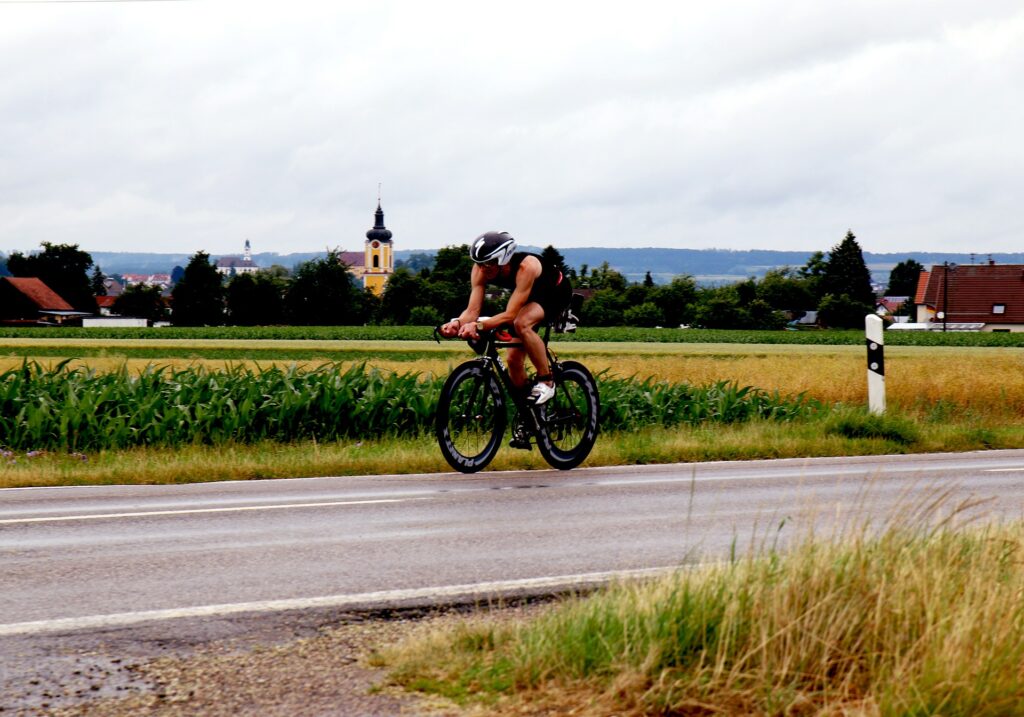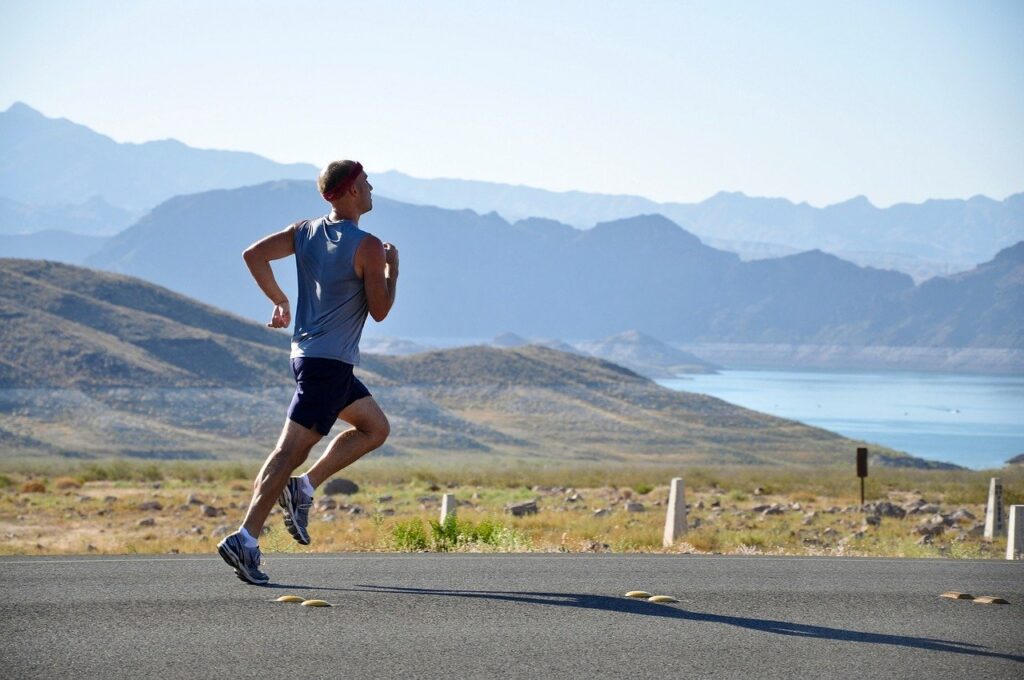Best triathlon books
Want to become a better triathlete while sitting on the couch? We’ve outlined the best triathlon books to help you improve your training.
(This post contains affiliate links. If you buy something through one of the links, we receive a small commission, at no extra cost to you. This helps keeps the website running. Thank you for your support. For more information see our disclosure here).
What are the best triathlon books?
Triathlon can seem like a complicated sport with three different and technical disciplines to master. A great way to learn more about the sport is to read a book written by an experienced triathlon coach. We’ve gathered some of the best triathlon books to help you become a better triathlete.
Some of these triathlon books are aimed at beginners; while others focus on helping more experienced triathletes develop further. Hopefully, our breakdown of each book will help you choose the right book for you.
The Triathlete’s Training Bible
Joe Friel
The book gives you the tools you need to be your own coach, outlining the best ways to plan your training program. It also features specific workouts for swimming, cycling, running, and brick sessions.
However, this book is not ideal for people who are new to triathlon, as it does get quite technical. Beginners will get lots out of it, but it is mainly aimed at more experienced triathletes who want to maximize their performance. Novice triathletes would be better off reading another book by Friel, Your First Triathlon.
It first came out in 1998 but has been updated multiple times to account for changes in training practices. The fourth edition was released in 2016 and was rewritten entirely from scratch. If you want a complete guide to improving your triathlon training, this is the book for you.

80/20 Triathlon
Matt Fitzgerald & David Warden
The aim is to spend 80% of your time training at a low intensity, and just 20% at a high or moderate intensity. This balance allows you to recover faster and get more training done overall. Most pro triathletes use a similar approach in their training.
The book contains numerous training plans for all race distances, including specific workouts for the entire plan. There are also detailed strength and mobility workouts, which form a key part of your training program.
If you are frustrated with not making progress in triathlon, this book can help transform the way you train. It can be difficult to stay at a low intensity, but it will pay dividends if you stay consistent.
Fast-Track Triathlete
Matt Dixon
With just 7-10 hours of training for a half-distance race or 10-12 hours for a full-distance, you can become an Ironman.
There are 14 week training plans for both race distances, as well as pre-season and off-season plans. Key workouts are highlighted so you know which sessions to prioritise if you are short on time. You can also scale workouts down if you are feeling fatigued or struggling to make time.
This is a book for time-crunched athletes who want to complete a long-distance triathlon. You may not achieve a personal best with this training plan, but you can prepare for a race and stay on top of your other commitments.

Triathlon for the Every Woman
Meredith Atwood
The book contains compact training plans, nutrition advice, and all the other practical information you need to prepare you for a triathlon. You get to see the journey to her first triathlon, and how she balanced training with a busy work and family life.
It is not quite as detailed with training specifics as some other books. However, it is great at helping you cultivate the mindset necessary to get to the start line. The conversational tone and funny anecdotes make the book far more engaging than most triathlon books. If you are worried about whether you are capable of completing a triathlon, this book will motivate you to take the first step.
Your First Triathlon
Joe Friel
There are a variety of training plans for sprint and Olympic distance races. A 12-week plan is ideal for complete beginners, or you can choose from other plans if you have experience in one of the three disciplines. You will be able to finish your first triathlon with just 5 hours of training per week.
There are also valuable race day tips to make sure you feel at ease. You won’t have to worry about what gear you need, Friel splits the kit list into ‘must have’ and ‘nice to have’. There are also detailed sketches that show you the best way to set up your transition area.

Be IronFit
Don Fink & Melanie Fink
The training plans are 30 weeks long and will help you understand the best way to build your fitness over time. The plans are all aimed at full-distance races, so look elsewhere if you want a training plan for a shorter race like a 70.3.
The book will guide you through effective heart-rate training, plus there are detailed core strength and flexibility workouts. Pre-race and race strategies will make sure you have a good plan for race day.
There are lots of tips for organizing your schedule and making the time to train. If you can’t afford a coach, this book will guide you through the entire process of training for an Ironman.
Strength training for triathletes
Patrick Hagerman
Triathlon-specific strength training will make you more resistant to injury, allowing you to train more consistently. It can also make your muscles stronger and leaner, thereby improving your body composition.
Instead of just going to the gym and using the first machine you see, this book will show you the 75 most effective exercises for triathletes. Full colour photos and clear instructions teach you the correct technique for each exercise. The guidance is user-friendly and light on jargon, so anyone will be able to understand it.
Hagerman helps you to establish a strength program based on your specific needs, whether that is finding more power on the bike or fighting fatigue on the run. This book can help you take your triathlon training to the next level.
Email: contact@smarttriathlete.com






